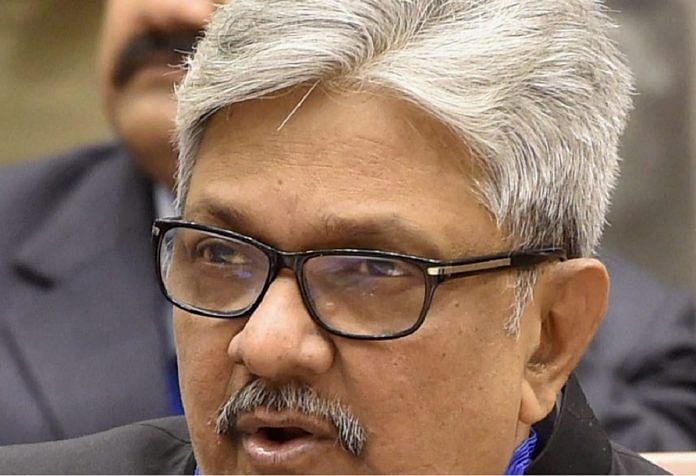Hours after the Modi govt sent Justice Joseph’s name back, the two judges conveyed to CJI Misra that the recommendation should be reiterated at the earliest.
New Delhi: Two members of the Supreme Court collegium want Chief Justice of India Dipak Misra to call a meeting at the earliest and reiterate its recommendation to elevate Uttarakhand High Court chief justice K.M. Joseph to the top court.
ThePrint has learnt that the two judges have conveyed this to CJI Misra, hours after the Modi government wrote to him Thursday asking the collegium to reconsider its decision to elevate Joseph to the apex court.
As per the existing memorandum of procedure, if the collegium reiterates its decision, the government would be bound by it.
“What the government has done is extremely arbitrary and unconstitutional. But while it (government) took its time to decide to return the recommendation, we hope our response will be swift. It is what the citizens expect us to do,” a collegium member told ThePrint.
As first reported by ThePrint, when it recommended Joseph’s name, the collegium had anticipated that the Modi government would return Joseph’s name for reconsideration, and had worked on a plan to counter the move. That was the reason it had recommended the name of just one high court chief justice.
“We knew there was a possibility that the government could use some excuse not to process the name (of Joseph). That is why it was decided to recommend only one name from among the eligible high court chief justices,” a member of the collegium told ThePrint in early February.
At the same time, the collegium had said that Joseph is “more deserving and suitable in all respects than other chief justices and senior puisne judges of high courts for being appointed as judge of the Supreme Court of India.”
Although CJI Misra said there is “nothing wrong” with the government asking the collegium to reconsider its recommendation, he will now have to hold a meeting and set the agenda to reiterate the collegium’s 10 January decision.
Rebuttal of the government’s arguments
Union minister for law and justice Ravi Shankar Prasad wrote to the CJI Thursday explaining why “the proposed appointment of Justice K.M. Joseph at this stage does not appear to be appropriate”.
The government’s argument against elevating Joseph is twofold: seniority and regional representation.
Joseph currently ranks 42nd in the all-India seniority list. However, he is also the longest-serving chief justice of a high court, serving in Uttarakhand since 2014.
In fact, no other chief justice apart from Joseph has been appointed before 2016. If appointed to the apex court, he will serve until July 2020, a tenure of over two years.
The collegium is likely to respond to the government saying that seniority cannot be a lone criterion in selecting a judge. ThePrint had earlier reported that the government, since it came to power in 2014, has accepted the collegium’s recommendations on the elevation of HC judges and chief justices to the Supreme Court even though they didn’t fulfil the government’s latest standard.
Even in February 2017, when four judges — Deepak Gupta, Mohan M. Shantanagoudar, Sanjay Kishan Kaul and Abdul Nazeer — were appointed, the government overlooked seniority. Official data shows that currently there are over 45 HC judges who are senior to Deepak Gupta, the most recently-appointed judge of the Supreme Court.
The second objection to Joseph’s elevation is that his parent high court, Kerala, already has adequate representation in the Supreme Court. Justice Kurian Joseph, the fourth most senior judge of the Supreme Court and collegium member, also belongs to the Kerala HC. However, he is set to retire in November.
Again, in the last round of appointments, Shantanagoudar and Nazeer – two judges from the Karnataka High Court — were picked in one go without any objections.
At present, there are two judges (J. Chelameswar and N.V. Ramana) from Andhra Pradesh, three (Madan B. Lokur, A.K. Sikri and Sanjay Kishan Kaul) from Delhi, and three (A.M. Khanwilkar, D.Y. Chandrachud and S.A. Bobde) from the Bombay High Court.






